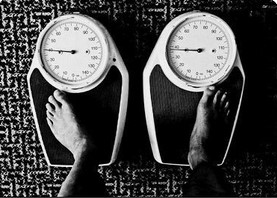Title: The Skinny on Fat Loss: Nutrition Tips for Achieving Your Goals
Introduction:
Achieving your fat loss goals requires a comprehensive approach that encompasses both diet and lifestyle factors. Nutrition plays a pivotal role in fat loss, as it provides the foundation for fueling your body, boosting metabolism, and supporting overall health. In this article, we’ll delve into the skinny on fat loss, offering valuable nutrition tips to help you achieve your goals and attain a leaner, healthier physique.

- Focus on Nutrient Density:
When it comes to fat loss, quality matters just as much as quantity. Instead of simply counting calories, prioritize nutrient-dense foods that provide essential vitamins, minerals, and antioxidants. Opt for colorful fruits and vegetables, lean proteins, whole grains, and healthy fats to nourish your body and support fat loss while ensuring you meet your nutritional needs. - Balance Macronutrients:
A balanced diet that includes adequate amounts of protein, carbohydrates, and fats is essential for supporting fat loss and maintaining muscle mass. Aim to include a source of lean protein, complex carbohydrates, and healthy fats in each meal to provide sustained energy, promote satiety, and optimize metabolism. Balancing macronutrients can help prevent cravings, stabilize blood sugar levels, and support overall well-being. - Control Portion Sizes:
While the quality of your food choices is important, portion control also plays a crucial role in fat loss. Be mindful of portion sizes and avoid overeating, even if you’re consuming healthy foods. Use smaller plates, measure servings, and pay attention to hunger and fullness cues to prevent overindulgence and support your weight loss efforts. - Stay Hydrated:
Proper hydration is essential for fat loss, as it helps regulate metabolism, curb cravings, and support overall health. Aim to drink plenty of water throughout the day, and consider incorporating hydrating foods like fruits and vegetables into your meals and snacks. Staying well-hydrated can help optimize digestion, improve energy levels, and enhance fat-burning potential. - Practice Mindful Eating:
Mindful eating involves paying attention to the sensory experience of eating and tuning in to your body’s hunger and fullness cues. Slow down, savor each bite, and eat with intention to prevent mindless overeating and promote healthier eating habits. By practicing mindful eating, you can develop a more positive relationship with food, reduce emotional eating, and support your fat loss goals.
Conclusion:
Achieving fat loss requires a balanced approach to nutrition that focuses on quality, quantity, and mindful eating habits. By prioritizing nutrient-dense foods, balancing macronutrients, controlling portion sizes, staying hydrated, and practicing mindful eating, you can optimize your nutrition for fat loss and achieve your goals more effectively. With dedication, consistency, and a commitment to healthy eating habits, you can attain a leaner, healthier body and enjoy long-term success in your fat loss journey.